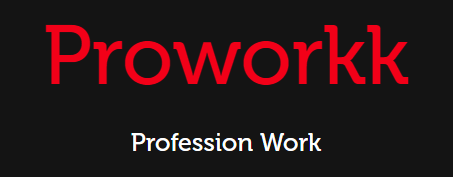Profession: UX Researcher
Experience: 8 years
Location: San Francisco, USA
My Personal Experience:
My journey into UX research began unexpectedly. While pursuing a degree in psychology, I developed a keen interest in understanding human behavior and decision-making. This passion led me to explore the field of user experience design, where I discovered the perfect blend of psychology and technology.
To gain practical experience, I pursued internships and freelance projects, which allowed me to apply my knowledge in real-world scenarios. Over time, I honed my research skills, collaborated with diverse teams, and conducted studies that provided valuable insights for product development.
Throughout my career, I have witnessed the impact of user-centered design on businesses and users alike. From improving website navigation to enhancing the overall user experience of digital products, UX research has the power to shape the success of companies and create meaningful interactions with end-users.
The Hard part I feel about this profession as per my experience till now:
Becoming a UX Researcher can be a challenging journey, especially for those who are starting with no prior experience. Many individuals often wonder how to become a UX researcher with no experience, and I can empathize with their concerns. It takes dedication, perseverance, and a strategic approach to break into this field successfully.
One of the primary challenges I faced was navigating the job market without prior UX research experience. However, I found that building a strong foundation in the principles and methodologies of user experience design greatly helped me overcome this hurdle. I invested time in learning how to conduct user interviews, analyze data, and generate actionable insights.
Another aspect that can be challenging is finding a UX research job with no experience. It’s essential to showcase your skills and knowledge effectively to potential employers. Building a portfolio with personal projects, case studies, or even volunteering for UX research opportunities can significantly enhance your chances of landing that coveted first job.
Things I find interesting or feel “happy” about this profession are:
Being a UX Researcher is a rewarding and fulfilling profession. One of the most exciting aspects is the opportunity to understand user behavior and uncover insights that shape the design of products and services. I have had the privilege of working on diverse projects, ranging from mobile applications to e-commerce platforms, which has allowed me to delve into different industries and user demographics.
As a UX Researcher, I have had the chance to collaborate with multidisciplinary teams, including designers, developers, and product managers. This collaborative environment fosters creativity and innovation, as each team member brings their unique perspective to the table. Additionally, I find it immensely gratifying when our research findings lead to positive user experiences and product improvements.
Pros And Cons which I feel about this profession:
Pros:
- Open-mindedness: As a UX Researcher, you constantly embrace new ideas, perspectives, and insights, which keeps you intellectually stimulated.
- Continuous learning: The field of UX research is dynamic and ever-evolving, offering ample opportunities to expand your knowledge and skills.
- Empathy and understanding: Through user-centered research, you develop a deep understanding of users’ needs, aspirations, and pain points.
- Value creation: By influencing the design and development process, you have the power to create products that truly meet users’ needs.
- Networking: UX research involves interacting with various stakeholders, allowing you to build a strong professional network.
Cons:
- Deadline pressure: Meeting project deadlines can sometimes be challenging, especially when research activities require meticulous planning and execution.
- Rapid industry changes: The fast-paced nature of the tech industry means that trends, tools, and methodologies can quickly evolve, requiring continuous adaptation and learning.
- Balancing qualitative and quantitative data: Finding the right balance between qualitative insights and quantitative data analysis can be demanding but essential for comprehensive research.
My suggestions for newcomers in this profession:
- Gain foundational knowledge: Start by learning the fundamental principles of UX research, including user interviews, usability testing, and data analysis. Online courses, books, and workshops can be valuable resources.
- Build a portfolio: Create personal projects or collaborate with others to showcase your skills. Highlight your research process, methodologies used, and the impact of your findings on the final design.
- Network and collaborate: Attend industry events, join UX research communities, and engage with professionals in the field. Collaborating on projects or volunteering for research opportunities can help you gain practical experience and expand your network.
- Embrace continuous learning: Stay updated with the latest trends, tools, and methodologies in UX research. Seek out opportunities for professional development, such as attending workshops or pursuing certifications.
- Develop strong communication skills: Effective communication is essential in UX research. Practice conveying research findings, insights, and recommendations in a clear and concise manner to various stakeholders.
In conclusion, being a UX Researcher is a challenging yet rewarding profession. By continuously learning, embracing new perspectives, and staying dedicated to user-centric design, you can thrive in this dynamic field. Remember, success comes with persistence, a genuine passion for understanding users, and a commitment to creating exceptional experiences.
